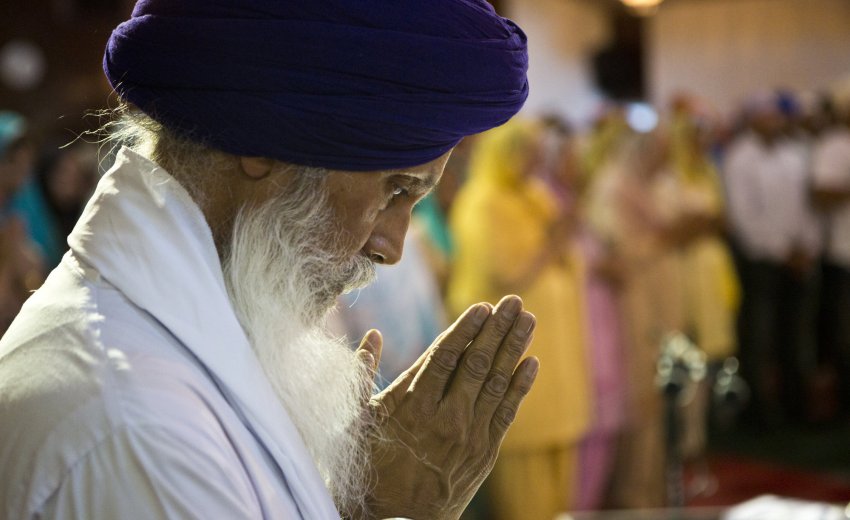Religion may or may not be the opiate of the masses but a new study says it may keep believers from losing their cool when things go wrong.
 "These results suggest that religious conviction provides a framework for understanding and acting within one's environment, thereby acting as a buffer against anxiety and minimizing the experience of error," said the study published in the journal Psychological Science.
"These results suggest that religious conviction provides a framework for understanding and acting within one's environment, thereby acting as a buffer against anxiety and minimizing the experience of error," said the study published in the journal Psychological Science.
Led by Michael Inzlicht, a University of Toronto psychology professor, researchers measured activity in the part of the brain - the anterior cingulate cortex - that is important for self control and acts as a warning signal that a mistake is being made.
"It acts as a cortical alarm bell," said Prof. Inzlicht. "And the finding is that the more people believe in God the less the cortical alarm bell rings."
Those with the deepest religious belief were more likely to let mistakes roll off their backs, while those who tend toward atheism were more likely to suffer stress and anxiety after committing an error.
"Karl Marx talked about religion being the opiate of the masses. Maybe he was on to something," Prof. Inzlicht said.
To test stress levels, he and his co-researchers used a "Stroop task." In it, subjects have a series words flashed in front of them. But they are told not to read the word but the colour of the word. For example, the word might be "blue" but if coloured red, the correct answer is red.
"It's difficult to do when the word and colour mismatch," said Prof. Inzlicht.
He said it is possible that a lack of anxiety may not be a good thing, as it may cause a more lackadaisical attitude.
"Anxiety can be beneficial," he said. "It gets you motivated, activated to perform at your best level. But if you're too anxious, your performance is going suffer. You're going to over analyze and think too much. What may be happening is that people with religion have a more optimal level of anxiety."
The study was not meant to argue for or against the existence of a higher being, Prof. Inzlicht said.
"Whether God is real or not is irrelevant to this study."
He called the study "statistically significant," meaning that the results should be repeatable in similar experiments and could act as a predictor to how people might react to real-world stress situations, such as today's crumbling stock markets. Prof. Inzlicht also said that no atheist in the study showed low anxiety and no religious person showed high anxiety.
Two separate studies were done and both showed the same results.
He said initially they were simply trying to understand what factors would activate these brain waves, not investigate religious belief.
At first, they asked people to describe themselves as being liberal or conservative. Then they asked others to describe their level of self-esteem. Neither of those parameters helped predict brain wave activity. It was only when they started asking about a belief in God and religiosity that a pattern developed.
National Post

